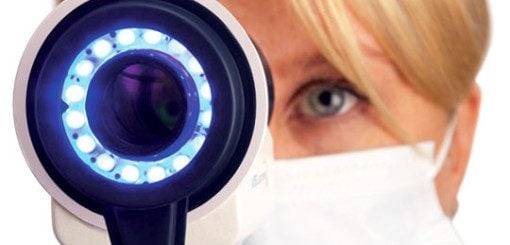We put our mouths through a lot every day. Speaking, smiling, laughing, eating our favourite foods, whistling a happy tune, or exhaling during a moment of serenity are all possible thanks to our mouths. Unfortunately, oral health is often not given the same consideration that would be given to the rest of the body. Where bleeding or tenderness anywhere on the body would call for a trip to the doctor, the same is often ignored when it’s in the mouth. The truth is that research has shown numerous ways in which oral health is strongly linked to general health. Our mouths deserve just as much care and attention as the rest of our bodies do.
Oral health and a happy life
Dental problems and oral health issues have a huge effect on our quality of life. Sores, missing teeth, and infections can not only be painful and irritating, but also affect how we speak, how we eat, and our mental state. If you’re feeling under the weather because of an oral health issue, it will be hard to feel good about much else.
Much like getting regular exercise and eating right, going to the dentist and having a regular checkup should be thought of as part of a healthy lifestyle. Going for dental checkups regularly can minimize the chances of seemingly small oral health issues becoming bigger problems and can even prevent them altogether. These checkups also include screenings for dangers like oral cancer, tumours, and infections.
What is oral cancer?
Oral cancer, or mouth cancer, is a cancer that can occur in any part of the mouth, from the lips, cheeks, and tongue, to the gums, salivary glands, and tonsils. Unfortunately, there are very few visible signs of oral cancer in its early stages. This means that without proper and regular screening, oral cancer can go undetected until it has progressed into its late stages, lowering the chances that it can be treated successfully.
Because of this, the survival rate for late detection of oral cancer is quite low. According to the Canadian Dental Association, approximately 3,200 Canadians are diagnosed with oral cancer every year resulting in approximately 1,050 deaths annually.
This is a major reason why regular dental checkups are extremely important. During checkups dentists will check for any signs of oral cancer in order to achieve a diagnosis as soon as possible. Early detection is key in treating oral cancer.
What are the signs and symptoms of oral cancer?
Oral cancer does not show many visible signs in its early stages, which is why regular dental checkups and screenings are vital in identifying it. Some signs and symptoms that may appear in its development include:
- Jaw pain or stiffness
- A difficulty or pain when chewing or swallowing
- Sores that will not heal
- Tongue pain
- Loose teeth
- White or reddish patches on the inside of the mouth
- Lumps or thickening skin lining inside the mouth
Who does oral cancer affect?
In short, oral cancer can affect anyone.
Historically, oral cancer was diagnosed more often in people over the age of 40. However, recent research has shown that it is now being found in people under this age as well, further highlighting the urgency of early detection. Oral cancer has been known to affect men more frequently than women, but again research is showing that the gap between the amount of men diagnosed and the amount of women diagnosed is shrinking.
Oral cancer has been proven to be more prevalent in those who smoke cigarettes, chew tobacco, or drink excessively, though it is certainly not exclusive to those groups of people.
Risk factors for oral cancer
Oral cancer is not caused by any one thing in particular, but rather a combination of various factors. Some of these factors include the following:
- Smoking cigarettes or chewing smokeless tobacco
- Sun exposure to the lips
- Excessive alcohol consumption
- Oral infections such as HPV
- Previous head and neck cancers
How do dentists check for cancer and other issues during a checkup?
During a regular visit to the dentist your mouth will likely be cleaned, polished, and checked from top to bottom. To identify any issues with your oral health, including any signs of gum disease or cancer, the dentist will look for any abnormalities within your mouth. These are some examples of abnormalities that your dentist will be on the lookout for to ensure that your oral health is the best it can be:
- Your neck area to ensure that your jaw joints, salivary glands, and lymph nodes aren’t inflamed and are working properly.
- Cuts, sores, or infections on your tongue, cheeks, and lips.
- Signs of receding, redness, puffiness, or bleeding along your gums.
- Each tooth will be examined for signs of cavities or decay.
Oral cancer screening saves lives
Screening is what dentists do to try and identify diseases like oral cancer before the diseases are showing any visible signs. This means that screening can help in detecting ad diagnosing oral cancer in its early stages, and treatment options can be explored as soon as possible. The sooner that oral cancer is diagnosed, the more likely it is that treatments will be successful.
Oral cancer screening by dentists is generally done by examining the mouth and neck. This examination can be even more comprehensive with the help of devices that use light to detect signs of oral cancer, such as skin abnormalities, that may have been overlooked by the naked eye. One of these devices is VELscope.
What is a VELscope screening?
The VELscope is a handheld device that emits a blue light which can help dentists identify early signs of oral cancer. VELscope’s blue light makes it easier for dentists to see any abnormalities in the mouth that may not have been seen with the naked eye. It is purely a diagnostic device and is completely non-invasive.
VELscope screenings are completely non-invasive and, when used during a regular oral examination, can increase the chances of finding oral cancer when it is still in its early stages. If oral cancer is identified and diagnosed in its early stages, treatment options are likely to be more successful.






